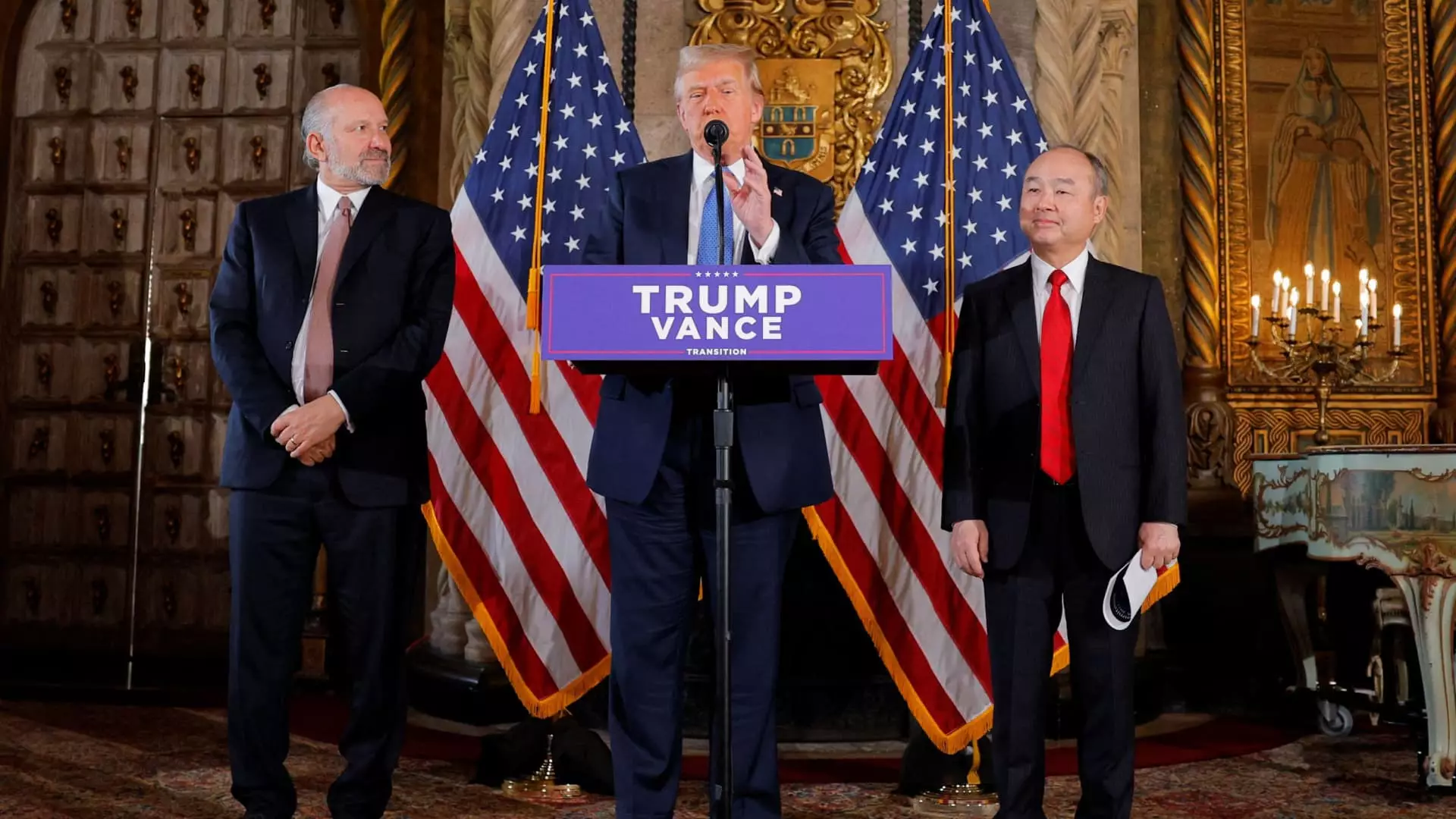In a bold and strategic move, SoftBank’s CEO Masayoshi Son has unveiled a monumental investment plan, announcing a staggering $100 billion commitment towards the U.S. economy over the next four years. This announcement, made during a meeting with President-elect Donald Trump at his Mar-a-Lago estate, underscores Son’s confidence in the American market and aligns with both leaders’ aspirations for job creation and technological advancement. By pledging to generate a minimum of 100,000 jobs primarily in fields such as artificial intelligence and its associated infrastructure, SoftBank aims to significantly enhance the U.S. tech ecosystem.
Son’s declaration can be viewed as a reflection of the prevailing optimism surrounding Trump’s victory in the 2016 elections. The billionaire investor remarked on how Trump’s electoral success had significantly boosted his confidence in the U.S. economy, dubbing the incoming president a “double down president.” This sentiment echoes Son’s earlier commitment made shortly after Trump’s initial election, where he promised a $50 billion investment intended to foster 50,000 jobs. Trump’s administration has strategically gathered initiatives that herald significant foreign investments, positioning the U.S. as a pivotal player in the global tech landscape.
Looking back, the synergy between SoftBank and the U.S. government has manifested in a series of investments aiming to catalyze technological innovation. Trump has proudly touted these commitments as proof of America’s attractiveness to international investors. The discussions prior to this latest announcement have often revolved around not just job creation but also the vital importance of fostering sectors like artificial intelligence and emerging technologies. Such industries are crucial not only for economic growth but also for maintaining the competitive edge that the U.S. has historically enjoyed on the global stage.
SoftBank’s investment is expected to draw from a variety of its financial assets, including its notable Vision Fund and other capital projects. Notably, some funds may already be earmarked for ventures like the $1.5 billion investment in OpenAI, the developer behind the widely-discussed AI chatbot ChatGPT. This raises questions about the strategy SoftBank employs—primarily whether these investments represent an expansion of resources or a reallocation of existing funds. The firm’s capacity to leverage its existing investments presents both opportunities and challenges in terms of managing the implications of such large-scale funding.
SoftBank’s pledge is not merely a financial commitment; it serves as a testament to a deeper partnership between leading global investors and the U.S. government. As emphasis on artificial intelligence and technological innovations continues to grow, this investment could provoke a ripple effect, encouraging other firms to follow suit. As we look towards the future, the implications of SoftBank’s investment will likely be significant—potentially positioning the U.S. as a forefront leader in the tech industry and reinforcing job security across various sectors. The success of this venture may depend heavily on the administration’s ongoing support for the growth of technology, which could redefine the landscape of innovation in years to come.

